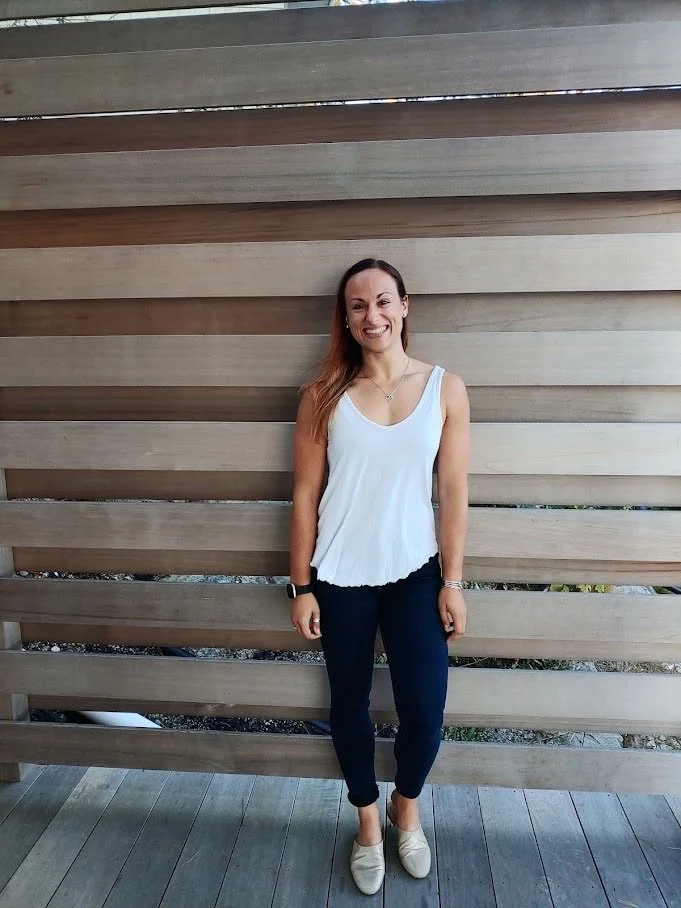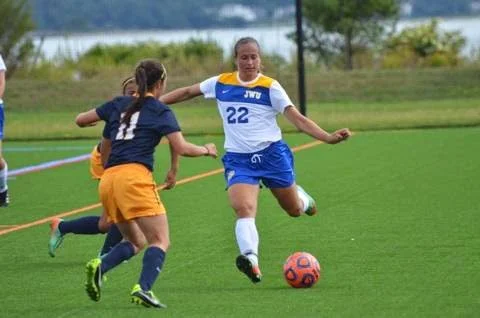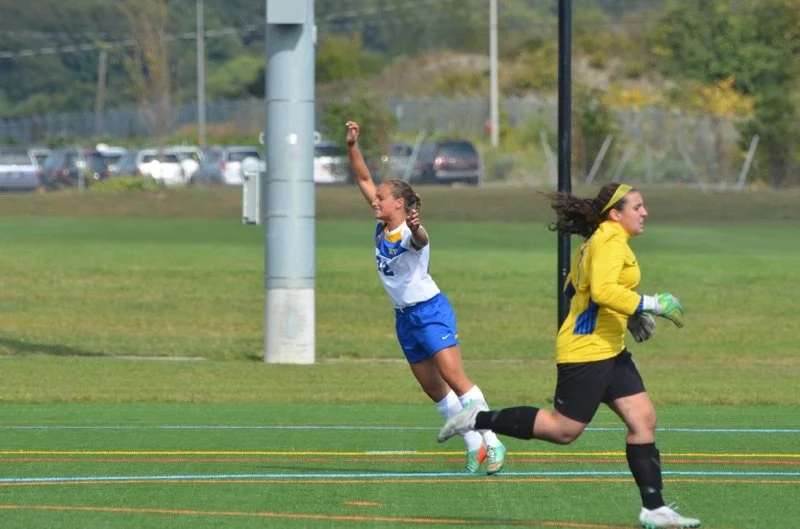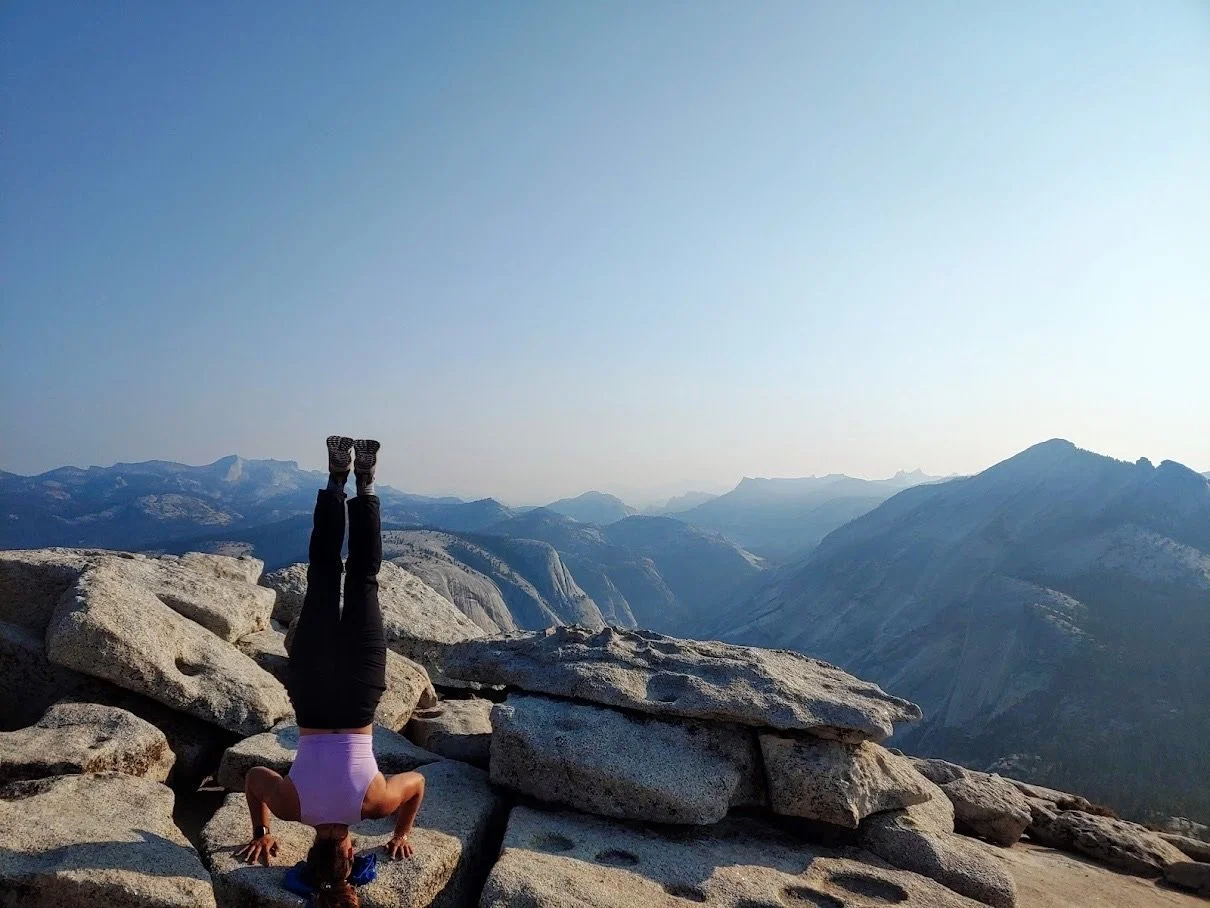Culinary dietitian and personal trainer interview: Colby Thibault
COLBY THIBAULT is a registered dietitian and virtual coach for former athletes. She played soccer in college while attending culinary school, which was the first half of her nutrition program at Johnson & Wales University in Rhode Island. She also has her certification for personal training and has been working with former athletes for almost 2 years.
Colby is currently engaged to her fiancé Josh and they are going to get married next October. At home she has two dogs and a cat. Fun fact...if she could save every animal in the world, she would. In her free time she loves cooking, reading, snowboarding, hiking, and lifting weights.
In this podcast with Colby, we will be discussing injuries, struggles as a student athlete, and her path to her career as a culinary dietitian and personal trainer.
Below I have written most of what we talked about but you can listen to the full podcast on Anchor / Spotify or on Apple Podcasts.
Q: How did you handle doing culinary school and culinary nutrition while being an athlete?
A: It was definitely a lot. The way the program was set up, we had to do 6 hour long labs. We would rotate through every 9 days.
Because I was a student-athlete, I had to take the morning labs that ran from 7am until 1pm.
After class, I would jump out, go get changed, shove something down my mouth, and go for afternoon practices and games. It was an ‘all the time & on the go’ schedule.
As an athlete we got early enrollment, which was super helpful to get first dibs on timing.
The labs were structured so that we would get there early and they would check us in, check our uniforms and make sure we had our equipment.
Then we would sit through lecture for multiple hours.
Then we would do the practical hands on stuff for the rest of the class.
We would go Monday through Thursday. We didn’t have classes on Friday’s since it was a culinary institution and that was a “high industry day” (is what they called it).
Nights and weekends in the culinary industry is obviously high traffic so they wanted to create opportunities for students.
Monday through Thursday we would have our labs and then we would switch labs so if I started with sports performance labs, after 9 class days, we would switch to a completely new chef, new kitchen, new lab, new everything.
As an athlete, I had to get early dismissals a bunch of times having to leave early or take my tests first, catch up on notes, make sure things were turned in early and it was a lot of responsibility.
My whole theory when I was looking into schools as a junior or senior in high school was that I wanted to learn everything I could about the food first.
If I was a dietician talking to clients about food and someone asked me “what’s a healthier way to cook chicken?” I should know those things.
Without that food knowledge behind me first, I didn’t see it as well rounded as a regular clinical dietician.
Q: Do you feel like you would have done a different degree if you weren’t a student-athlete?
A: No, I really chose the path I did based on a career, a dream and goals and soccer was icing on the cake.
I was well prepared not to play anymore if it came down to it.
I chose the school based on the major and the career first and soccer followed suit from there.
I turned down really high level schools for higher division playing that were offering me full rides but they didn’t have the major and career path that I was pursuing so I had to make a really hard choice.
Go to a high level school to play the sport and have who knows what kind of career afterwards or make the safe choice and be smart about it.
Q: Have you ever faced any injuries or setbacks?
A: My shins were always a huge issue, I had chronic shin splints my whole career. After every game I had ice packs strapped on to my shins.
I had a pretty big injury not related to soccer but it affected my school and my life now.
I was snowboarding junior year of college and hit my head really hard and ended up with a grade 3 concussion.
It would have split my head open if I wasn’t wearing a helmet.
I had to take a medical leave from school for about 6 weeks and coming back was landing at around the time we were taking finals.
When I came back I had to not only started new classes but I had to finish the classes I had left behind at the same time.
I would read a sentence and completely forget what I was reading a second later.
It was so frustrating and it still is because it has lasting effects that I can’t really control.
Q: You’ve mentioned to me that you experienced a mixture of not believing in yourself and coaches not believing in you at some time in your career. What was your experience with that and how did you handle that?
A: It was definitely tough at moments.
I started playing premier at at the age of 11 years old.
My club coach outside of high school actually ended up being my college coach.
I thought this was going to be the best thing ever because we already had that relationship.
Going into preseason freshman year it was like a flip.
I understand that he treated me like everyone else but I was benched for a very long time and it was definitely not what I was used to.
I was used to being a starting player and barely coming out. Not understanding the reasoning why had me spiraling questioning my ability, confidence and everything.
I feel like that has such an impact and it doesn’t just go away over night. I identified, even in business going through mindset work, that lagged on for awhile.
The confidence and the mindset and belief systems of not being good enough and comparing with others.
I would create fights with my best friends and teammates because they were getting playing time and I wasn’t.
They’re supposed to be our teammates and that’s not a desirable trait to have in a team sport relationship.
Being able to identify it before letting it get to you, that self awareness of “hey my mind isn’t working like it usually does” and “I’m having these thoughts” and being strong enough to sit down and figure out why and where they’re coming from will definitely help.
Something I work on with my clients a lot is that we were not built to give ourselves praise and celebration.
It’s really unnatural to do especially coming from a team sport because we were constantly getting that from teammates, coaches, fans and everyone else.
Now you have to tell yourself you are doing a good job and be that source of praise.
It’s something we start every client call with is to say out loud and celebrate wins.
The difference between writing it down and saying it to another human being is so impactful and it’s not that hard to do.
I hope it translates to other areas of life like being able to come home and talk to your partner about something you’re proud of yourself for that day.
Q: What was one of your favorite moments while competing?
A: I think my career highlight would be scoring my first goal in college.
You can see the excitement I’m talking about in a picture of me jumping in the air which was right after I scored that goal. I was so excited.
We were talking about that setback of being benched and not starting and being able to finally prove that I’m doing what I was brought here to do.
I could have very easily given in to excitement in that moment and whiffed it but I told myself to calm down and take it easy and I made the goal.
Q: What did you do in your newfound free time after your soccer career ended?
A: After school, I was in my dietetic internship for a year in Connecticut. When that started the fall after graduating school, I didn’t really have any free time.
It was at a very large hospital so just learning where to go was a struggle in itself.
It was definitely all consuming and it two fold worked in my favor but it took up all my free time.
It’s like I didn’t have all of the negative feelings of my career ending like feeling sad or guilty or anything like that because my brain was preoccupied with doing other things.
But I also think it was negative in a way because I didn’t give myself enough time to process through those things.
It definitely held its impact because it started manifesting in other ways.
I thought to myself that I need to work through these things.
Q: What aspect of the transition out of sports was the hardest for you? What advice can you give to athletes on what you learned from that?
A: I think the hardest part was just not being aware of where the emotions and actions were coming from.
I think that’s very deeply rooted in the non-communication of this transition in sports in college and even high school to some degree.
Even if you just played in high school.
I have some clients that have the same mindset issues that my collegiate athletes also have.
It’s that lack of communication of “hey this is how this is going to happen, this is how we get through it, these are the emotions you’re going to feel”.
That lack of guidance and preparation ahead of time I think is what really needs to change.
I think we’re in a great position to change that.
The advice I would give is to anticipate it happening and ask questions along the way from either seniors that graduated a year before you or the coaches.
They’ve obviously gone through it too and see it all the time.
Asking those questions and preparing yourself ahead of time so it’s not a shell shock when it happens.
That’s one of the best ways we learn is from other peoples experiences and if they can transfer their knowledge and their energy through something like a mentorship I think that’s the best way it can happen.
If you missed the last podcast, our guest was basketball player Devin Sorell. In that episode, we discussed coaching changes, nagging injuries, and finding a job after sports. Up next we will have Maddie Fuhrman as our guest. In that episode, we will be talking about transferring schools, handling setbacks, and how to deal with feeling like you left your sport not feeling done yet.
If you have any more questions for Colby, please leave comments below or contact me. If you or someone you know is struggling, please call or text the Suicide Hotline. It’s toll free and available 24/7 at 988 or 800-273-8255.
Rose Medal’s mission is to provide resources and support for current and former athletes. Please support our mission by making a donation.
Are you or someone you know currently struggling with what happens in life after sports? Or did you already go through that transition to life after retiring competitive sports and wish you had more resources and support? Have you ever wondered, “what do athletes do after they are done playing sports? What’s next after sports?” Do you feel like you dedicated so much to your sport and you don’t know what to do now that you’re done competing? You’re not alone. Check out the site and join us in the journey. Once an athlete, always an athlete.
More blog posts you might like:





